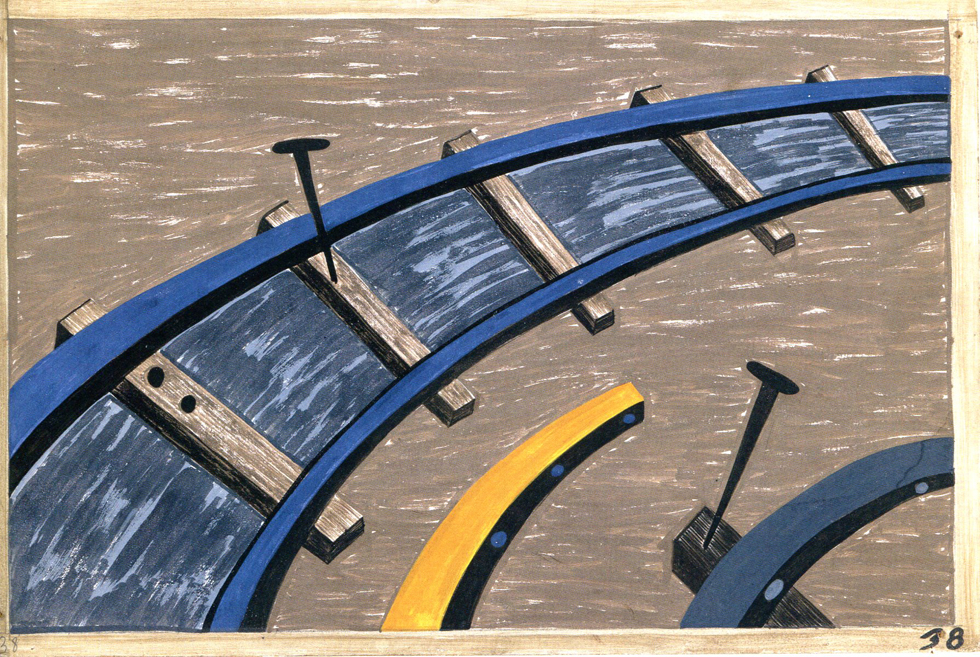Jacob Lawrence
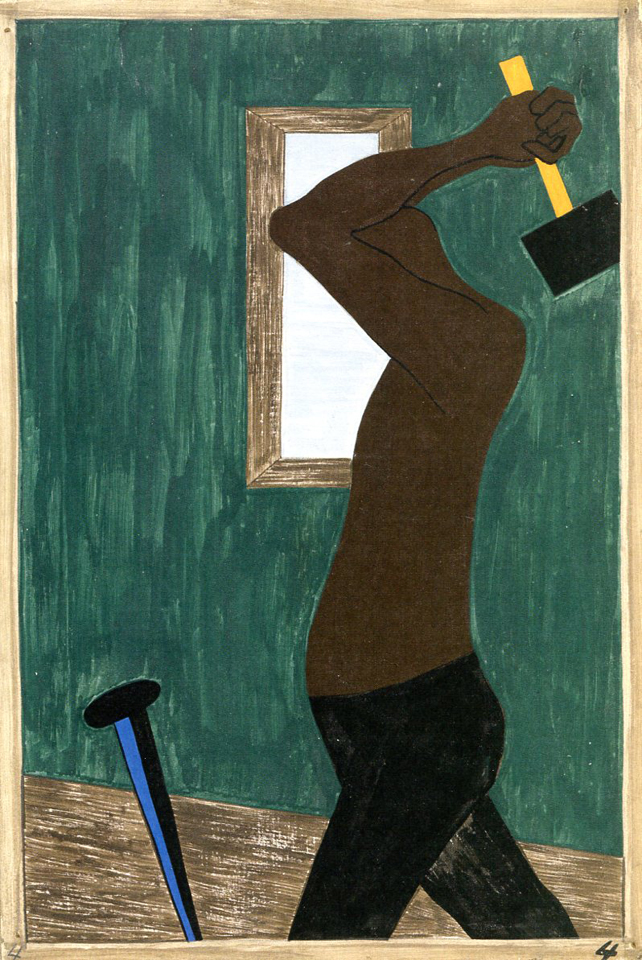
Jacob Lawrence, The Great Migration Series, All other sources of labor having been exhausted, the migrants were the last resource, Panel 4, 1941
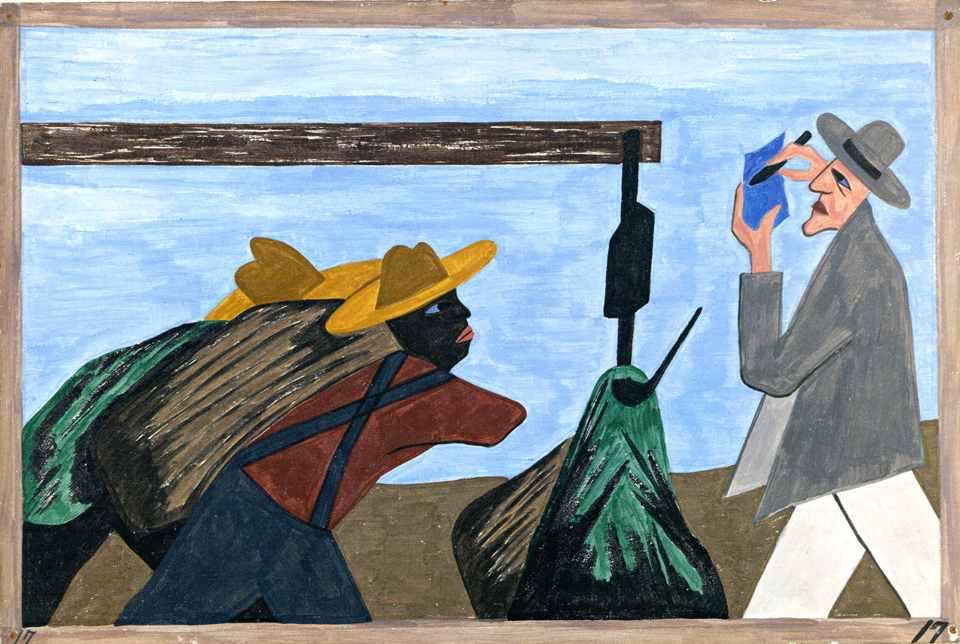
Jacob Lawrence, The Great Migration Series, Tenant farmers received harsh treatment at the hands of the planters, Panel 17, 1941
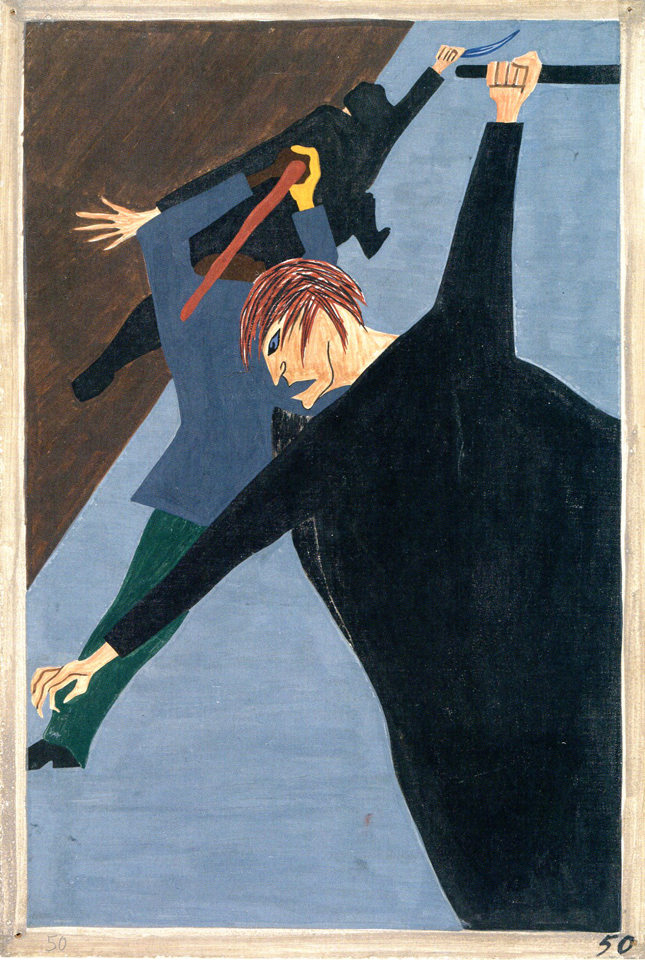
Jacob Lawrence, The Great Migration Series, Race riots were numerous. White workers were hostile toward the migrant who had been hired to break strikes, Panel 50, 1941
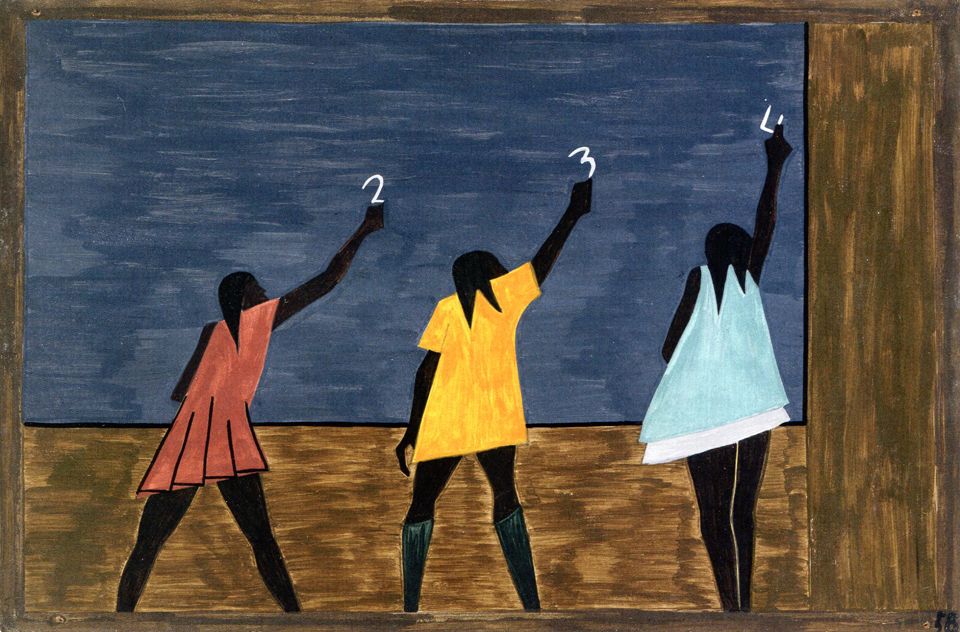
Jacob Lawrence, The Great Migration Series, In the North the African American had more educational opportunities, Panel 58, 1941
In 1941, when Jacob Lawrence (1917 – 2000) was only twenty-three years old, he made a suite of 60 small tempera paintings on cardboard illustrating the Great Migration of black Americans from the rural South to the urban centers of the North. Beginning in the early 20th century through 1970, approximately six million African Americans left Alabama, Mississippi and Georgia to move to Chicago, New York, Detroit and other cities. Lawrence was a child of migrant parents, inspired by their stories and research he did at a neighborhood library, Lawrence created an epic visual narrative of the collective experiences of dislocation, racism and hope. Believing art could be a catalyst for social change, Lawrence wanted to provide a visual anchor for the personal histories of African Americans in the 20th century.
Responding to Lawrence’s panel #10 from the Great Migration Series, poet Rita Dove composed:
Say Grace
Got a spoon
Got a pan
Got a bucket for the scraps
Got a nail to hang things on
A wish
An empty sack
Dear Lord bless our little bit
This table
Our beds
Dear Lord who made us
And the world
Now we can raise our heads

